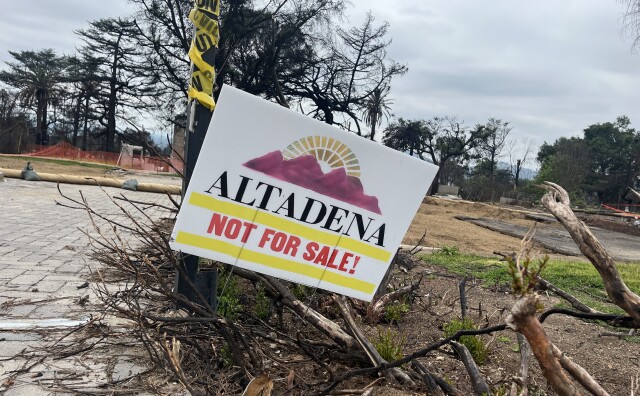Congress has cut federal funding for public media — a $3.4 million loss for LAist. We count on readers like you to protect our nonprofit newsroom. Become a monthly member and sustain local journalism.
Media Outlets Are Changing The Way They Report On Mass Shootings

In the past month, at least five mass shootings have shaken the nation.
In mid-March, an armed suspect killed eight people in Georgia. One week later, a shooter left ten people dead in a supermarket in Colorado. Those two incidents were followed by another shooting in Orange County, one in South Carolina, and one in Texas.
The recent spate has meant renewed critique of the way national and local media cover shootings.
Kelly McBride, a media ethicist and senior vice president of the Poynter Institute, says the reason some stories rise to the level of national coverage while others garner more localized coverage has to do, in part, with how numb we have become to the news of a mass shooting on its own.
“This is actually a very dark commentary on both the news media and the American news consumer,” she says. “But it's not enough to just have a horrific act where a number of people died. There has to be something more than propels that story forward.”
Since the mass shooting at Columbine High School in Colorado in 1999, she adds, newsrooms have shifted to spend more time focusing on victims, rather than perpetrators.
Many newsrooms have also adopted the practice of naming the shooter as little as possible.
As Editor-in-Chief of our newsroom, I’m extremely proud of the work our top-notch journalists are doing here at LAist. We’re doing more hard-hitting watchdog journalism than ever before — powerful reporting on the economy, elections, climate and the homelessness crisis that is making a difference in your lives. At the same time, it’s never been more difficult to maintain a paywall-free, independent news source that informs, inspires, and engages everyone.
Simply put, we cannot do this essential work without your help. Federal funding for public media has been clawed back by Congress and that means LAist has lost $3.4 million in federal funding over the next two years. So we’re asking for your help. LAist has been there for you and we’re asking you to be here for us.
We rely on donations from readers like you to stay independent, which keeps our nonprofit newsroom strong and accountable to you.
No matter where you stand on the political spectrum, press freedom is at the core of keeping our nation free and fair. And as the landscape of free press changes, LAist will remain a voice you know and trust, but the amount of reader support we receive will help determine how strong of a newsroom we are going forward to cover the important news from our community.
Please take action today to support your trusted source for local news with a donation that makes sense for your budget.
Thank you for your generous support and believing in independent news.

-
People moving to Los Angeles are regularly baffled by the region’s refrigerator-less apartments. They’ll soon be a thing of the past.
-
Experts say students shouldn't readily forgo federal aid. But a California-only program may be a good alternative in some cases.
-
The program is for customers in communities that may not be able to afford turf removal or water-saving upgrades.
-
More than half of sales through September have been to corporate developers. Grassroots community efforts continue to work to combat the trend.
-
The bill would increase penalties for metal recyclers who possess or purchase metal used in public infrastructure.
-
The new ordinance applies to certain grocers operating in the city and has led to some self-checkout lanes to shutter.







